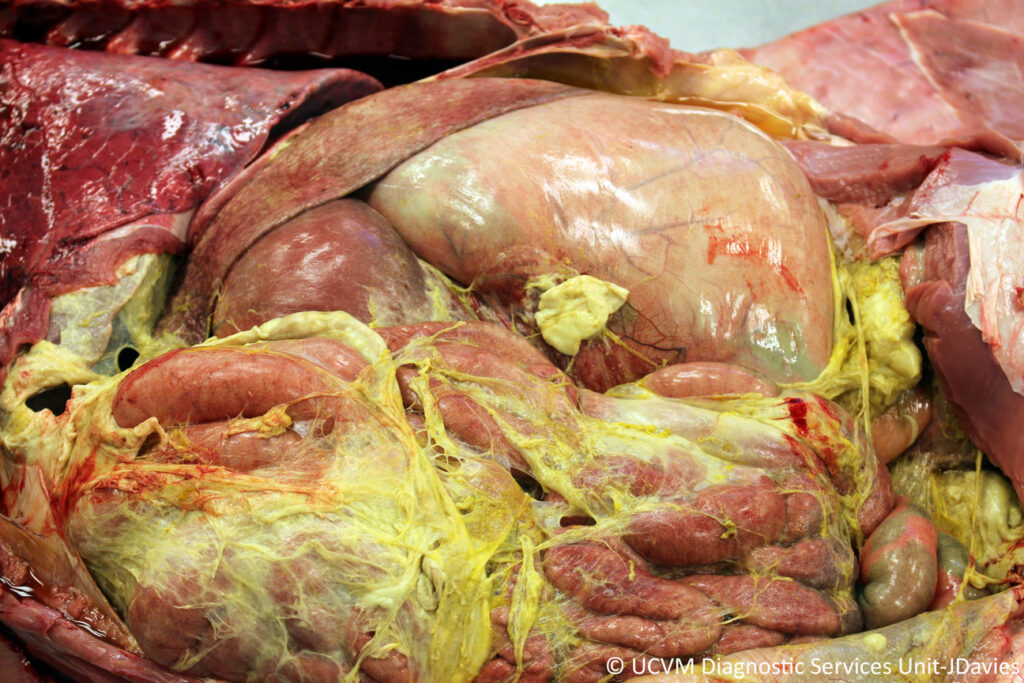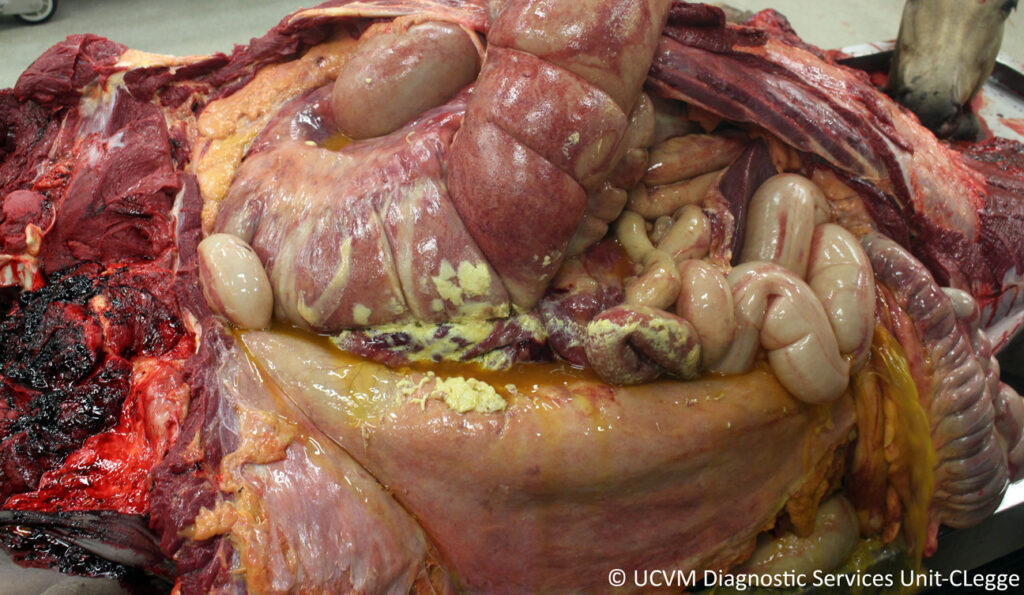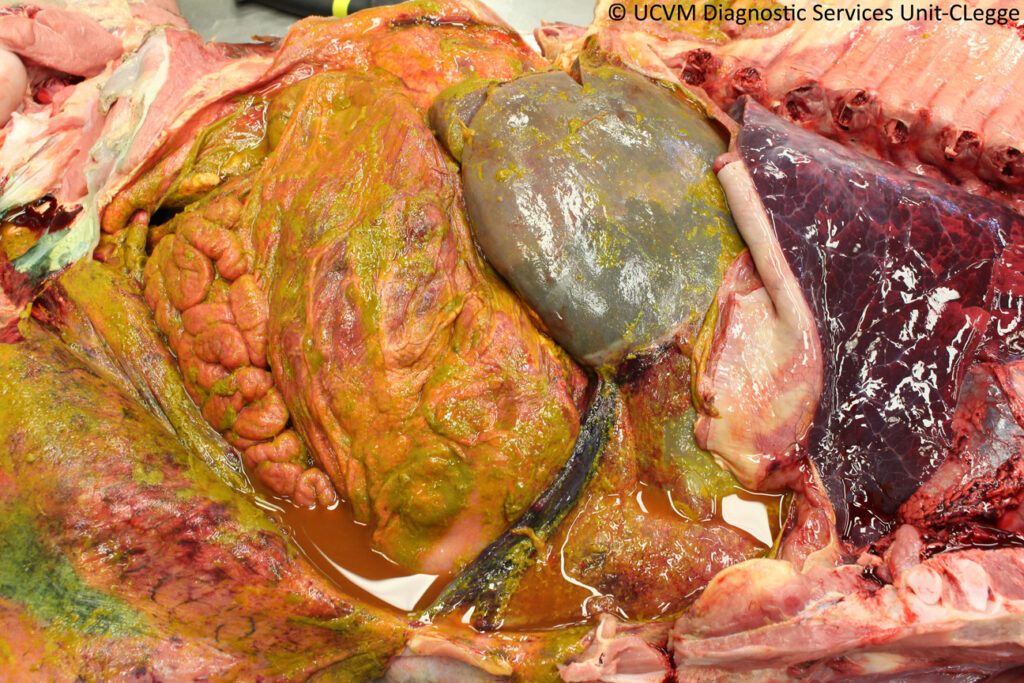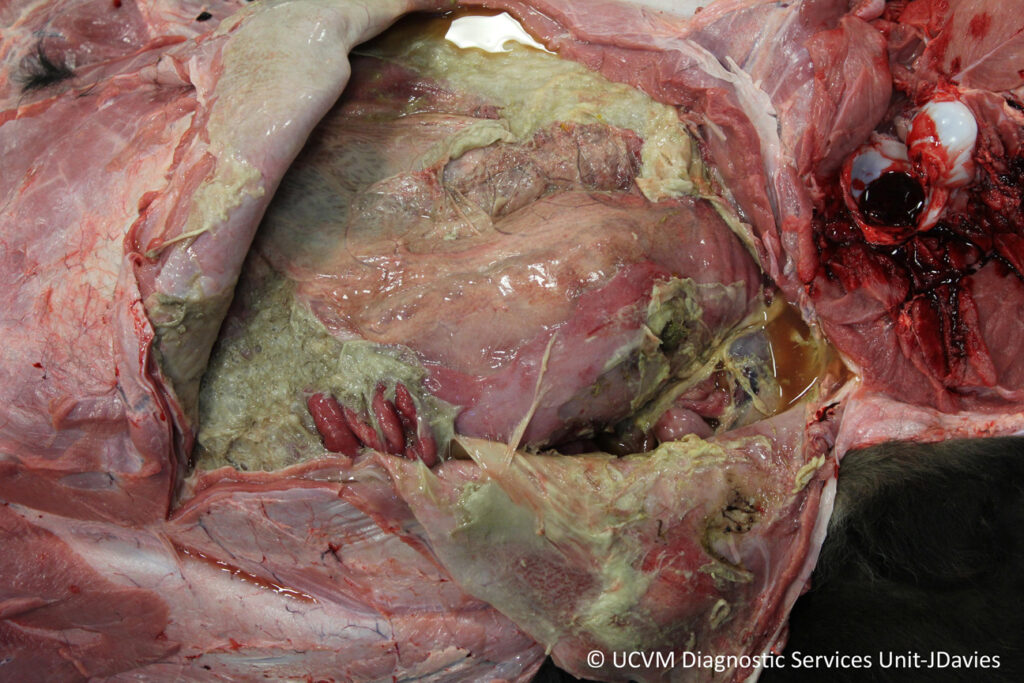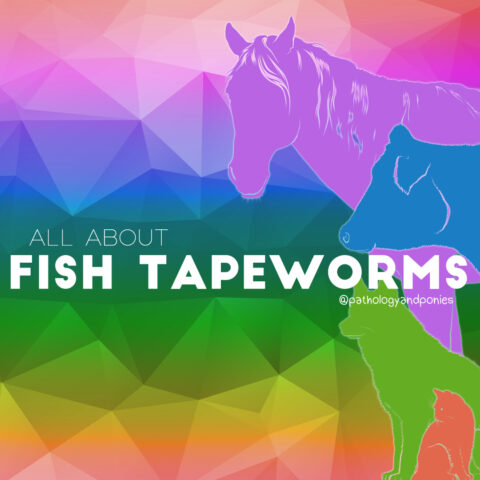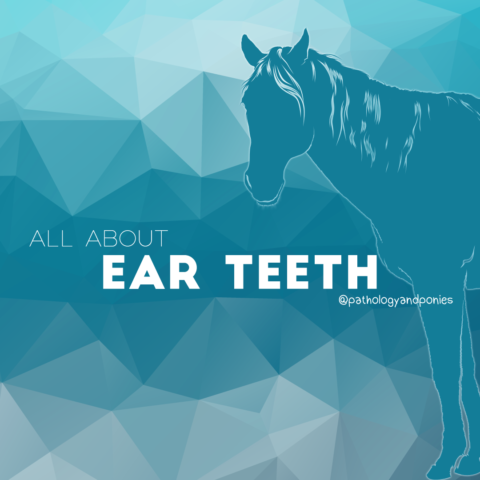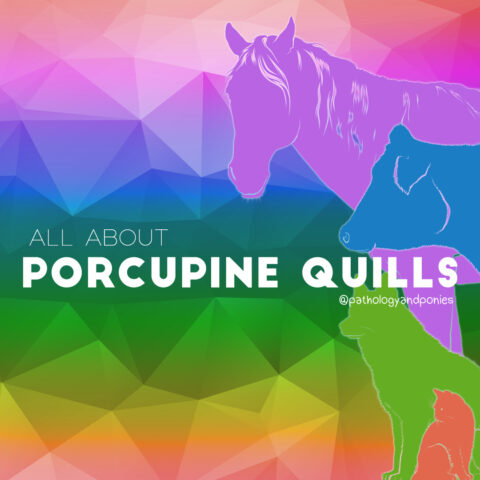Today’s path rounds are on 𝐩𝐞𝐫𝐢𝐭𝐨𝐧𝐢𝐭𝐢𝐬, inspired by a case I had this week!
𝐖𝐡𝐚𝐭 𝐢𝐬 𝐢𝐭?
𝐏𝐞𝐫𝐢𝐭𝐨𝐧𝐢𝐭𝐢𝐬 is inflammation of the 𝐩𝐞𝐫𝐢𝐭𝐨𝐧𝐞𝐮𝐦, which is the lining of the abdomen. Peritonitis is characterized by large clumps or mats of 𝐟𝐢𝐛𝐫𝐢𝐧, one of the body’s main clotting proteins, that are trying to “wall off” the source of inflammation to try and prevent it from spreading elsewhere in the abdomen. Unfortunately, fibrin is often not very good at controlling the source, and the peritonitis becomes 𝐝𝐢𝐟𝐟𝐮𝐬𝐞 throughout the whole abdomen.
𝐖𝐡𝐨 𝐠𝐞𝐭𝐬 𝐢𝐭?
Any species can get this!
𝐖𝐡𝐚𝐭 𝐜𝐚𝐮𝐬𝐞𝐬 𝐢𝐭?
The basic underlying problem causing peritonitis is some sort of foreign material or fluid in the abdomen. Some common causes include leakage of gastrointestinal contents, bile, pancreatic secretions, or bacterial infection.
𝐖𝐡𝐲 𝐢𝐬 𝐭𝐡𝐢𝐬 𝐚 𝐩𝐫𝐨𝐛𝐥𝐞𝐦?
One of the first issues with a widespread peritonitis is that it can cause 𝐩𝐚𝐫𝐚𝐥𝐲𝐭𝐢𝐜 𝐢𝐥𝐞𝐮𝐬, or no movement of the intestines, which leads to constipation. Why would the body do this? Because it is trying to prevent the movement of the intestines from spreading the foreign material around the abdomen! Neat.
Unfortunately this neat feature does have some consequences. Without having adequate flow through the gastrointestinal tract, a lot of fluid, electrolytes and nutrients become stuck there. This can lead to issues with maintaining 𝐚𝐜𝐢𝐝-𝐛𝐚𝐬𝐞 𝐛𝐚𝐥𝐚𝐧𝐜𝐞, which can ultimately cause death if left untreated. If there are bacteria involved in the infection, the bacteria can proliferate in the abdomen and produce toxins. These toxins can then move into the bloodstream and cause death of the animal. Ultimately, peritonitis is generally a pretty sad time for the animal.
If the animal manages to survive the initial stages of peritonitis, it’s still not out of the woods yet! Fibrin has a “fun” feature of organizing and maturing into 𝐟𝐢𝐛𝐫𝐨𝐮𝐬 𝐚𝐝𝐡𝐞𝐬𝐢𝐨𝐧𝐬 after 3-4 days, which are essentially giant bands of scar tissue. Remember how this fibrin is all over the abdomen? When it becomes fibrous, it often can tighten around the intestines causing obstruction. This leads to similar problems as the paralytic ileus described earlier. Sometimes science is cruel ![]()
𝐇𝐨𝐰 𝐢𝐬 𝐢𝐭 𝐝𝐢𝐚𝐠𝐧𝐨𝐬𝐞𝐝?
Peritonitis can be diagnosed by doing an 𝐚𝐛𝐝𝐨𝐦𝐢𝐧𝐨𝐜𝐞𝐧𝐭𝐞𝐬𝐢𝐬, where they stick a needle into the abdomen and collect a fluid sample. From this sample, the veterinarian can look for feed material (indicating a gastrointestinal rupture), bile, urine, etc. to try and identify the cause of the peritonitis. Peritonitis fluid can also be visualized on ultrasound, however it may not give you specific information about the cause of the peritonitis.
𝐇𝐨𝐰 𝐢𝐬 𝐢𝐭 𝐭𝐫𝐞𝐚𝐭𝐞𝐝?
The main treatment requires fixing whatever caused the peritonitis initially, followed by supportive care measures like 𝐩𝐞𝐫𝐢𝐭𝐨𝐧𝐞𝐚𝐥 𝐥𝐚𝐯𝐚𝐠𝐞 (rinsing out the abdomen), antibiotics and anti-inflammatory medications. Unfortunately in our large animal species, this is extremely difficult, so a lot of considerations about the animal’s quality of life have to be incorporated into developing a treatment plan.
𝐏𝐡𝐨𝐭𝐨𝐬
1-5) Examples of peritonitis! Look at all that fibrin having a party in the abdomen.
𝐒𝐨𝐮𝐫𝐜𝐞𝐬
Maxie, G. Jubb, Kennedy and Palmer’s Pathology of Domestic Animals, Volume 2. Sixth Edition.
Wittek, T. Peritonitis in animals. Merck Veterinary Manual 2020.
Photos 1-5 courtesy of University of Calgary Diagnostic Services Unit.


